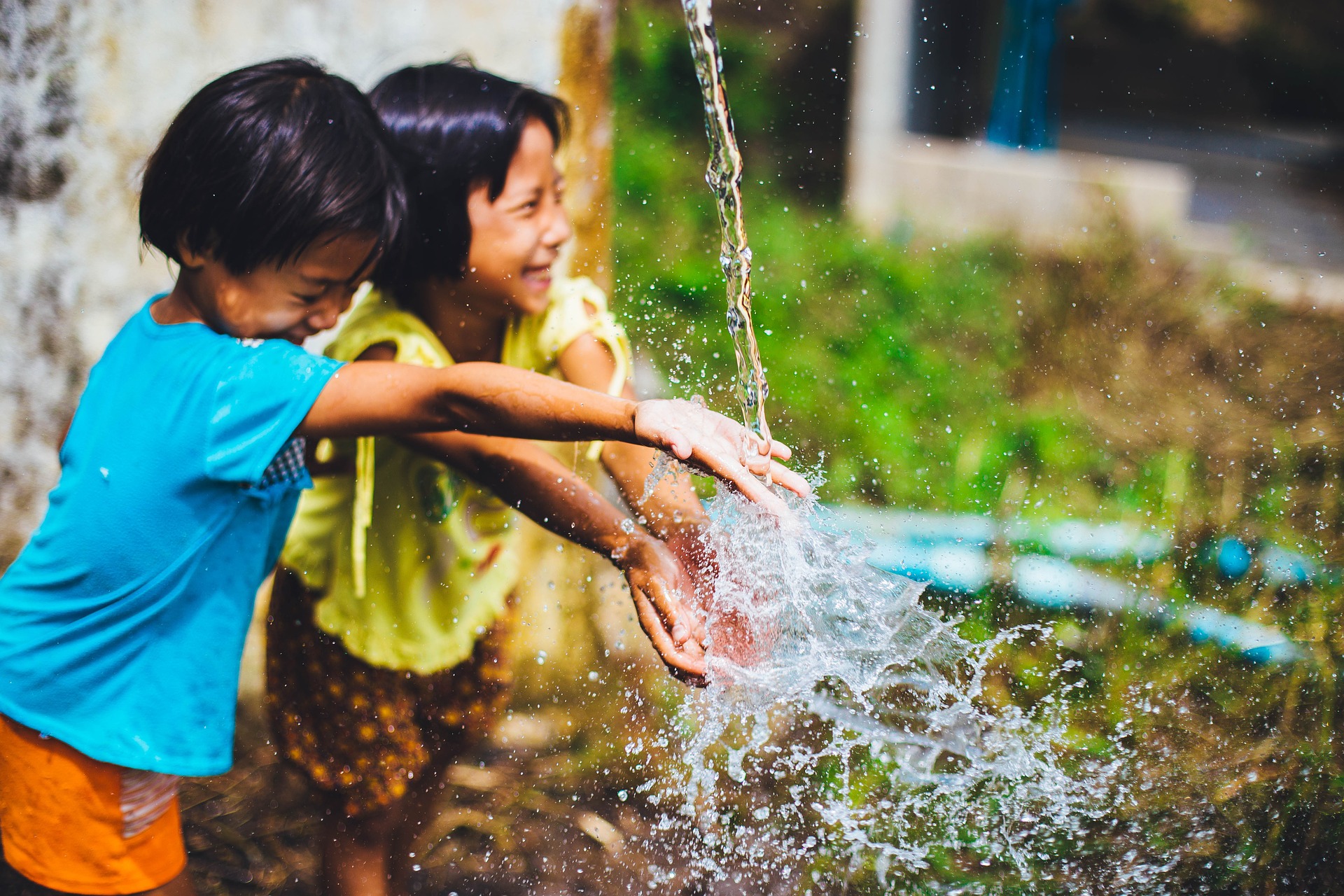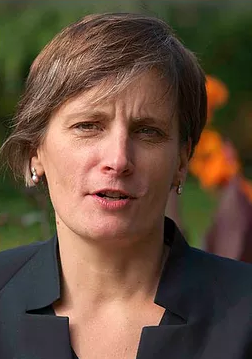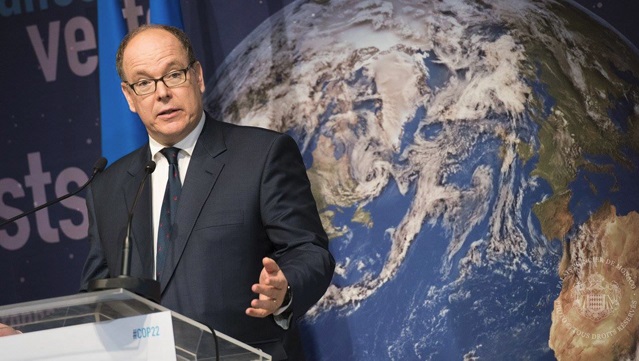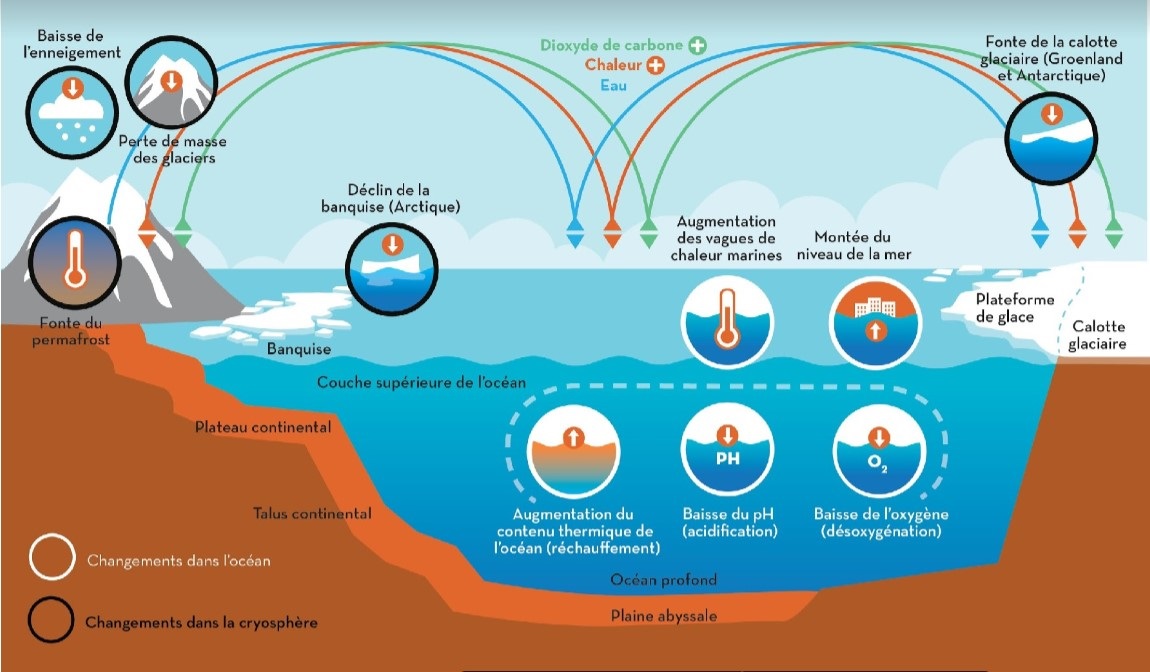IPCC SPECIAL REPORT
Special report on the ocean and cryosphere in a changing climate
- Home
- Actualités
- OCEAN AND CRYOSPHERE in a context of climate change
IPCC: 51st session in the Principality of Monaco
The Intergovernmental Panel on Climate Change (IPCC) held its 51st session in the Principality of Monaco from 20 to 23 September 2019 during which it considered the Special Report on Ocean and Cryosphere in a Changing Climate (SROCC).
For the IPCC, ” Humanity depends directly or indirectly on the Ocean and the Cryosphere. The ocean covers 71% of the earth’s surface and accounts for 97% of the water on earth. »
The “Cryosphere” represents all the components of the Earth system that are frozen, on the land and under the land, on the surface of the ocean or under the surface of the ocean. This includes snow cover, glaciers, polar ice caps, ice floes, icebergs, sea ice, freshwater lake ice, river ice, permanently frozen ground (called permafrost), and ground that is seasonally frozen.
Find below the replay of the conference.
WATCH LIVE - 11:00 CET ON WEDNESDAY 25 SEPTEMBER
September 25, 2019:Results
The report was made public at a press conference at the Oceanographic Museum in Monaco.
The IPCC in brief
The Intergovernmental Panel on Climate Change (IPCC) is an intergovernmental body that specializes in the study of climate change science. Established in 1998 by the United Nations, its purpose is to provide policy makers with regular assessments of the state of scientific knowledge on climate change.
– Ocean & Cryosphere in a Changing Climate (September 2019): See the Report (or click on the button below to the IPCC website to access all online resources)
The IPCC’s main assessment report comes out every six years and is punctuated by more specific special reports. Three special reports were issued during this sixth evaluation cycle:
– Global warming at 1.5°C (2018): https://www.ipcc.ch/sr15/
– Climate Change and Land Use (August 2019):
https://www.ipcc.ch/report/srccl/
The IPCC assessments are written by hundreds of international scientists, recognized for their expertise, before being submitted to the governments of the 195 member countries. The IPCC does not conduct its own scientific research but relies on existing publications.
The main challenges faced by human societies today are also associated with climate change [...]: the systemic effects of these phenomena have not spared a single area of the planet and constitute factors of environmental upheaval that exacerbate the imbalance in our oceans.”
S.A.S. le Prince Albert II de Monaco
The Prince Albert II of Monaco Foundation (P.A.I.2) is active in three priority areas of action:
- Limiting the effects of climate change and promoting renewable energy
- Preserving biodiversity
- Managing water resources and combating desertification
Ocean and Climate Platform
Born in 2014, the Platform Ocean and Climate (POC) is a coalition of scientists from different disciplines (researchers, NGOs, aquariums, French and international institutions…).
As the only French NGO to have participated in the review of this major new report, the POC is now presenting “Ocean and Climate Change: The New Challenges”, a booklet deciphering 6 major themes addressed in this report: warming, melting ice, rising sea levels, extreme events, and deoxygenation
A healthy ocean means a protected climate, and a good understanding of these cause and effect links is a prerequisite for our evolution towards a sustainable world that respects all living things.
– The Knowledge Dissemination sheets : Link to come
– The scientific sheets : Link to come
The IO and the POC: a founding member of the POC, the IO is on the Board of Directors and participates in the development of content.
VALERIE MASSON-DELMOTTE: UNDERSTANDING THIS REPORT
Climate expert and Co-Chair of an IPCC working group, member of the Board of Directors of the Oceanographic Institute, Valérie Masson-Delmotte explains the links between ocean and climate…
Office for Climate Education (OCE)
Established in 2018, the Office for Climate Education (OCE) aims to organize strong international cooperation between scientific bodies, NGOs and educational institutions to educate present and future generations about climate change.
Here are some resources produced by the COA to further your understanding of the report:
– An educational guide and resources on Ocean and Climate for primary and secondary school teachers. Link to come
– •
Summary for teachers
Why produce a report on 1.5°C of warming?
– •
Ocean and Climate Training Resources
.
– •
Greenhouse Effect Training Resources
Greenhouse Effect Training Resources: aimed primarily at teacher trainers.
The Oceanographic Institute wishes to promote the OCE tools produced in connection with Ocean and Climate Change through communication actions.

Feedback
We want people to remember that the issue is a serious one, but that we can do something to make progress and face the challenges. France has set itself the objective of becoming carbon-neutral by 2050, and for the time being emissions are not falling quickly enough.









